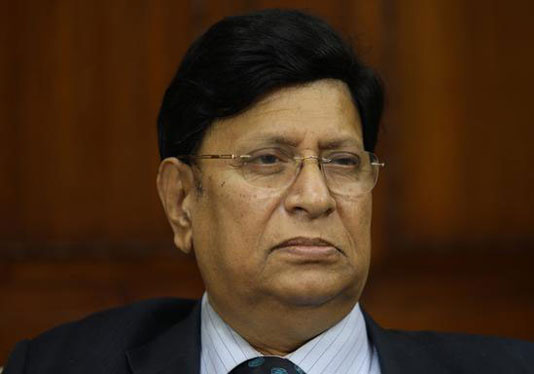DHAKA, Dec 11, 2019 (BSS) – Foreign minister Dr A K Abdul Momen today ruled out allegations raised in Indian parliament that Bangladeshi minority communities were being tortured and feared the neighbouring country’s proposed citizenship law could rather affect its historic character as a secular nation.
“It’s not true that torture on minority is taking place in Bangladesh,” he
told reporters this afternoon as approached for comments on the allegations
made by the Indian Union Home Minister Amit Shah in Lok Sabha, the lower
house of Indian parliament.
Momen added: “Whoever gave them the information, it is not correct.”
The foreign minister simultaneously added that the “Citizenship Amendment
Bill, 2019” passed two days ago in Lok Sabha could weaken the country’s
“historic position” as a tolerant and secular country.
“India is historically a tolerant country which believes in secularism . .
. their historic position will be weakened if they deviated from that,” Momen
said emerging from back to back meetings with Japanese ambassador and US
ambassadors in Dhaka Naoki Ito and Earl R. Miller.
He added that Bangladesh and India were currently were enjoying close
friendly relations “that is termed as ‘golden chapter'” of bilateral ties and
“so, naturally our people expect that India won’t do anything that could
create anxiety among them”.
Momen said Bangladesh maintains strong religion harmony and ensures that
followers of all faiths enjoy same rights in every area including the job
sector.
“Many important decisions of our country are taken by persons belonging to
different religions . . . we never judge anybody by their religion, we treat
all as Bangladesh citizens,” he said expecting the minority community
representatives to echo his remarks.
Shah, who also heads India’s ruling BJP, claimed that torture on Hindu
communities in Bangladesh alongside Afghanistan and Pakistan were taking
place, as a fierce debate was underway for nine hours in Lok Sabha on the
bill which eventually was passed amid protests from opposition parties and
various groups.
Momen said during his meeting with Miller, the US envoy expressed as well
his country’s concern about the Indian bill as they believe in religious
freedom.
“They (USA) are being critical about that . . . they believe India weakened
its position by doing it (passing the bill),” he said.
US Commission on International Religious Freedom (USCIRF) sought sanctions
against Amit Shah and other principal Indian leadership if the bill was
passed by both houses of Indian parliament describing the draft law as a
“dangerous turn in the wrong direction”.



